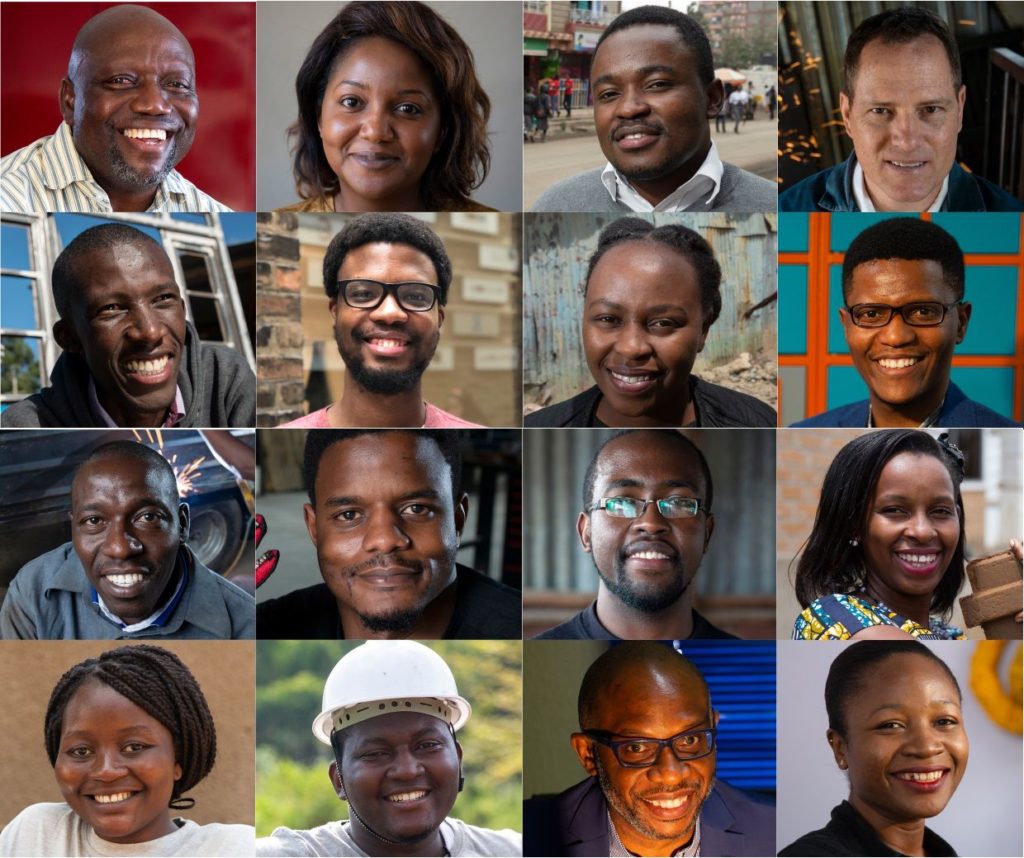16 engineers across Africa have been shortlisted for the fifth edition of for the Africa Prize for Engineering Innovation in South Africa. This award is to organise by the Royal Academy of Engineering.
This award provides a unique package of support, a chance of winning up to £25,000, comprehensive business training, bespoke mentoring and access to the Academy’s network of high profile, experienced engineers and business development experts.
Included in this year’s are innovators who made a smart glove that translates sign language to speech in real time, a secure currency exchange platform that moves money between users instead of banks, and a ‘farm-in-a-box’ vertical garden that uses waste to grow food in small urban spaces.
We're proud to present the shortlist for the 2019 #AfricaPrize for Engineering Innovation – 16 talented entrepreneurs set to receive 7 months of training, mentoring, and the chance to win £25,000: https://t.co/R5vpcWQybv pic.twitter.com/jd4zCQ4RaX
— RAEngGlobal (@RAEngGlobal) November 19, 2018
The shortlisted candidates emerged from six countries, with five female engineers among them. Each of the 16 engineers will develop skills that last a lifetime, and become part of a growing community of talented African engineers working to accelerate socio-economic development through business.
According to Rebecca Enonchong, Africa Prize judge and Cameroonian entrepreneur, “The shortlist has come to represent the most talented engineers on the continent. Through the Africa Prize, we’ve seen cutting edge technologies and world-firsts develop into businesses that manufacture locally, and drive research and development on the continent.”
Also recognised are the creators of a control system for poultry farmers, a smart dryer that enhances the nutritional value of grain, a solar irrigation system specific to semi-arid areas, and a technique for harvesting water from the atmosphere, designed especially for arid and semi-arid areas.
See Also: 11 African Start-ups Secure Corporate Partnerships at AfricArena
Four finalists will be selected from the shortlist after seven months’ of mentoring and training. In June next year, the finalists will present their businesses to judges in front of a live audience in Kampala, and one winner will receive £25,000, and three runners up will get £10,000 each.
The shortlisted engineers and technologies include
- Pelebox Smart Lockers, Neo Hutiri from South Africa – secure temperature-controlled lockers that eliminate medication queuing time for patients
- Sign-IO, Roy Allela from Kenya – a smart-glove that tracks and translates sign language movements into speech in real time
- Smart Brooder, George Kimani from Kenya – the system that takes the guesswork out of poultry farming, automating heating systems according to animals’ ages
- Smart Havens Africa, Anne Rweyora from Uganda – a combination of technologies that help women acquire their first homes affordably and sustainably
- 3-D-3-P Industrial dryer, Professor Dele Sanni from Nigeria – an industrial food dryer that dries grain for livestock feed faster, and increases the nutritional value of food stocks
- JuaKaliSmart, James Ochuka from Kenya – an online platform that connects “JuaKali”, or informal artisans, directly to their customers
- KAOSHI, Chukwunonso Arinze from Nigeria – an online platform that exchanges currencies peer-to-peer instead of through banks, cutting costs and waiting periods
- Majik Water, Beth Koigi from Kenya – a technique for harvesting water from the air to provide a new source of affordable, clean drinking water for off-grid communities
- SolarKoodo, Safiatou Nana from Burkina Faso – a solar irrigation system that uniquely caters for semi-arid areas where precision and efficiency are essential
- Baby Delivery Kits, Muzalema Mwanza from Zambia – disposable, affordable and comprehensive equipment that helps midwives deliver babies safely
- Chanjoplus, Collince Oluoch from Kenya – an online platform that tracks immunisation data, helping health workers ensure all children are vaccinated
- Elo-cart, Kenneth Guantai from Kenya – a battery powered system that recoups energy from motion to self-power hand carts, used by traders, farmers and health workers
- Hybrid five-axis machine tool, Dr Lukas du Plessis from South Africa – a hybrid machine tool that increases productivity, but costs less than traditional machine tools to manufacture
- The Vertical Farm, Paul Matovu from Uganda – a ‘farm-in-a-box’ for urban areas, using urban waste to grow high yielding plants
- WellNewMe, Dr Obi Igbokwe from Nigeria – an algorithmic approach to proactively identifying people at risk of contracting non-communicable diseases
Zenafri, Elizabeth Kperrun from Nigeria – an app that teaches toddlers basic language and numeracy skills in their native tongue
More on TechGist Africa:
- Meet Mustafa, Ghanaian Teenager Who Created a Model to Successfully Diagnose and Predict Breast Cancer.
- Paga Signs Partnership Deal with Orange Mall
- Kenya’s Farm.ink Wins Fall Armyworm Tech Prize
- WHO Launches its First African Ever Innovation Challenge for Health Start-ups
- 11 African Start-ups Secure Corporate Partnerships at AfricArena
